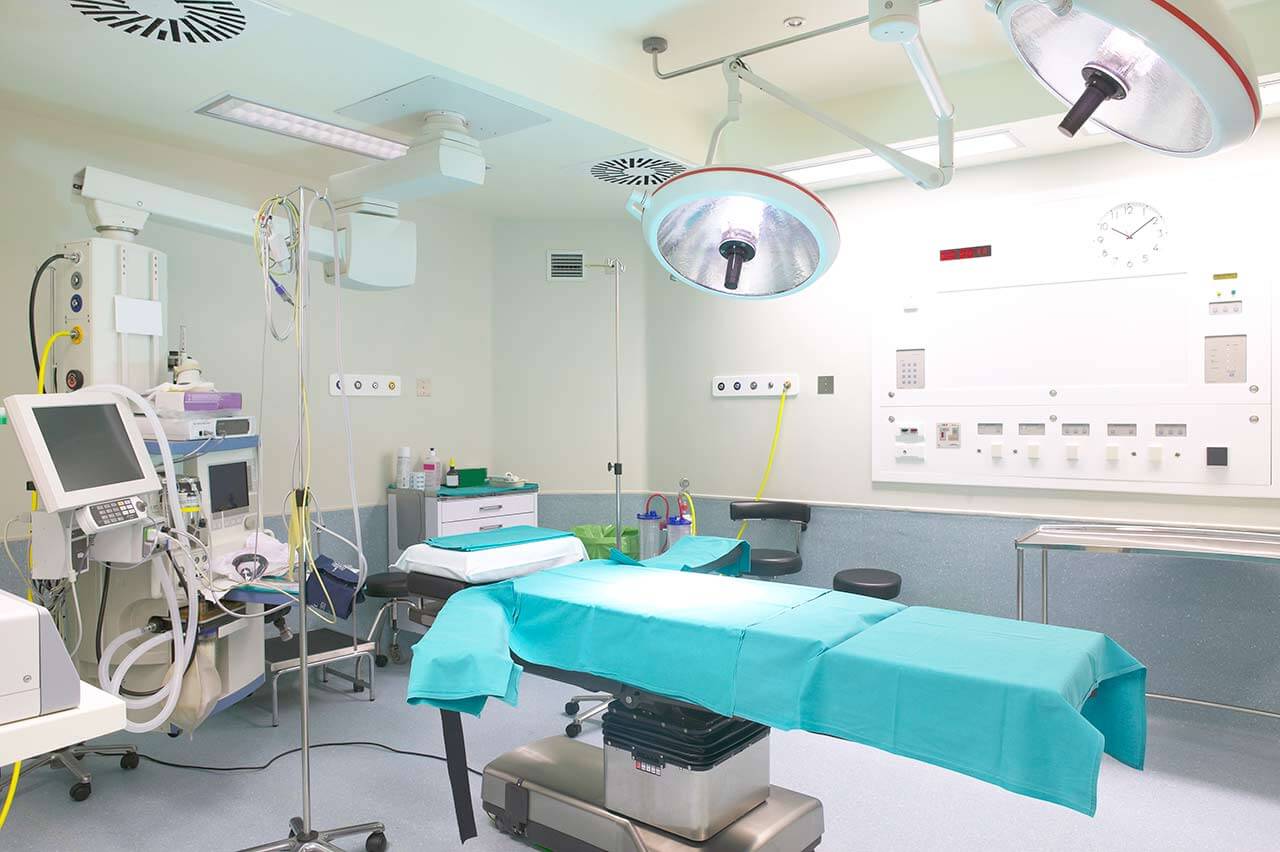
About the Department of Pediatric Oncology and Hematology at Childrens Hospital Nuremberg
The Department of Pediatric Oncology and Hematology at the Children's Hospital Nuremberg provides the full range of medical services in the areas of its specialization. The department's doctors diagnose and treat solid malignant tumors and benign and malignant pathologies of the hematopoietic system. Pediatric oncologists and hematologists focus on young patients with gliomas, glioblastomas, medulloblastomas, Ewing's sarcomas, osteosarcomas, retinoblastomas, leukemias, and lymphomas. The department's medical team admits children and adolescents up to the age of 18. Many diagnostic and therapeutic procedures are performed on an outpatient basis, making the treatment process easier for the child. The medical care in the department meets the requirements of the Society for Pediatric Oncology and Hematology (GPOH). A treatment regimen for each child is developed during an interdisciplinary tumor board, and the doctors strive to prescribe the most effective and sparing therapy. The most commonly used treatment method in the department is chemotherapy. Surgical interventions for the resection of solid malignant tumors are performed by highly specialized pediatric surgeons. Children and their parents receive psychological support throughout the entire treatment process. The Head Physician of the department is Dr. med. Jörg Leyh.
The most common cancer in the clinical practice of the department's doctors is leukemia. The specialists have vast experience in the treatment of all types of blood cancers in children, such as acute lymphoblastic leukemia, acute myeloid leukemia, chronic myeloid leukemia, and myelodysplastic syndromes. The main warning signs that may indicate the development of the disease in a child are fever, weakness, increased fatigue, easily occurring bleeding and hematomas, and pain in the bones and joints. In the initial stage of diagnostics, doctors carry out a clinical examination, study the patient's medical history, and perform a complete blood count. If the results of the preliminary diagnostics are unsatisfactory, the child is also prescribed a bone marrow puncture or biopsy. In some cases, instrumental tests may also be required, including ultrasound of the salivary glands, lymph nodes, liver, and spleen, chest X-ray, and CT and/or MRI. The first-line treatment for leukemia is chemotherapy. The course of chemotherapy is often supplemented with immunotherapy. A bone marrow transplant may be the best treatment option for children with advanced stages and aggressive forms of leukemia. This procedure is performed in cooperation with partner clinics.
The department also successfully treats children with the following brain malignancies: gliomas, medulloblastomas, ependymomas, craniopharyngiomas, and rhabdoid tumors. Brain tumors in children are the second most common type of cancer after leukemia. Brain cancer in its early stages progresses slowly and is asymptomatic, so it is difficult to suspect cancer in a child. When the tumor reaches a large size, the child experiences severe symptoms, including headaches, nausea, vomiting, vision problems, coordination problems, increased fatigue, hormonal imbalances, unexplained weight loss or gain, etc. The child with a suspected malignant tumor undergoes thorough diagnostics, during which doctors carry out a general clinical examination, study the medical history of the young patient, and perform a comprehensive neurological examination to assess brain functions (vision, hearing, balance, coordination, and reflexes). The specialists also conduct imaging tests, such as CT and/or MRI, which allow them to accurately determine the location and size of the brain tumor. The final stage of the diagnostics is a biopsy, and if necessary, a lumbar puncture may also be performed. With all the diagnostic data available, oncologists, together with pediatric surgeons, begin to elaborate a treatment regimen. The treatment of brain cancer is usually based on the surgical resection of the neoplasm. However, surgery is most often not sufficient to completely suppress the oncological process in the brain, so the treatment regimen additionally includes chemotherapy, radiation therapy, or targeted therapy. After the basic course of treatment, the child undergoes rehabilitation aimed at restoring vision, speech, hearing, and motor function. Experienced psychologists work with the young patients and their parents during the treatment. The specialists use modern approaches to eliminate stress and depressive states and set up a child for a favorable treatment outcome.
The department's specialists have vast experience in the treatment of Ewing's sarcoma, a malignant bone tumor in children. The tumor is most often localized in the lower and upper limbs or pelvis. The main manifestations of Ewing's sarcoma include swelling and pain in the tumor area, fever, lameness, spontaneous bone fractures, and severe bone pain, especially during physical activity and at night. To confirm Ewing's sarcoma, the department's doctors carry out a complete blood count, a lactate dehydrogenase test, a bone X-ray scan, a chest CT scan (the tumor can spread to the lungs), magnetic resonance imaging, bone scintigraphy, and a biopsy. Based on the diagnostic results, the department's oncologists make an accurate diagnosis and determine whether Ewing's sarcoma is localized (the tumor is located only in one part of the body) or metastatic (cancer has spread to the lungs, bone marrow, or other bone structures). Fortunately, in most cases, the specialists diagnose the localized type of Ewing's sarcoma, which significantly increases the chances of a complete cancer cure. In most cases, treatment begins with a course of chemotherapy to shrink the size of the tumor, after which surgeons perform a surgical intervention. In some situations, local tumor irradiation may be used instead of surgery.
The department's key clinical focuses include:
- Diagnostics and treatment of leukemia
- Acute lymphoblastic leukemia
- Acute myeloid leukemia
- Chronic myeloid leukemia
- Myelodysplastic syndrome
- Diagnostics and treatment of brain tumors
- Gliomas
- Medulloblastomas
- Ependymomas
- Craniopharyngiomas
- Rhabdoid tumors
- Diagnostics and treatment of lymphomas
- Hodgkin lymphoma
- Non-Hodgkin lymphoma
- Diagnostics and treatment of Ewing's sarcoma
- Diagnostics and treatment of osteosarcoma
- Diagnostics and treatment of neuroblastoma
- Diagnostics and treatment of liver cancer
- Diagnostics and treatment of retinoblastoma
- Diagnostics and treatment of germ cell tumors
- Diagnostics and treatment of other malignant tumors
- Pancreatic cancer
- Thyroid cancer
- Throat cancer
- Laryngeal cancer
- Nasopharyngeal cancer
- Diagnostics and treatment of other diseases in children
Photo of the doctor: (с) depositphotos




